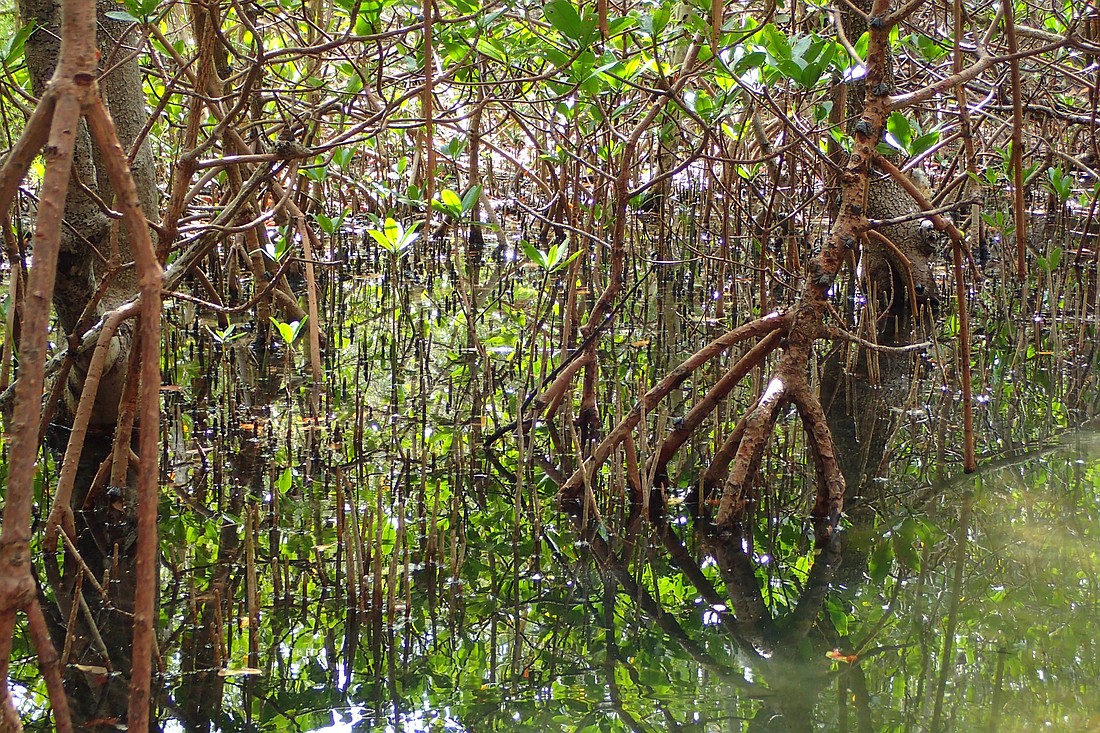- May 4, 2024
-
-
Loading

Loading

No one disputes what happened on that clear Saturday morning in February 2014: Paul Maurer cleared and filled 0.17 acre of mangroves and wetlands on his Manasota property.
But when he was found in violation of Sarasota County ordinances and ordered to replace the mangroves or face fines of $250 per day, he appealed, arguing that the county had no relevant authority and that the state is responsible for enforcement. The court eventually agreed with him.
After being told it had overstepped its authority in enforcing mangrove protection violations, the county will ask the state for authority to do so, even after rejecting a similar proposal in the past.
On Sept. 8, Sarasota County commissioners unanimously agreed to apply to the Florida Department of Environmental Regulation for delegated authority on mangrove protection. Once the process is complete, Sarasota County will be able to enforce certain provisions of the state's Mangrove Trimming and Preservation Act in unincorporated areas of the county.
Maurer's high-profile violation figured prominently in Tuesday's board meeting discussion.
Twelfth Judicial Circuit Court Judge Kimberly Bonner emphasized in her opinion that the court does not condone Maurer’s actions.
“(Maurer and other appellants) engaged in wholesale destruction of mangroves on their property and essentially decimated a wetland,” Bonner wrote.
However, she upheld the appeal, ruling that the county had, in fact, been pre-empted by the state.
In March, commissioners agreed not to appeal that decision but told staff to research the state’s enforcement capabilities. At Tuesday’s meeting, staff said the county would be more effective than the state at enforcing provisions.
During that meeting, Commissioner Christine Robinson said that it took the FDEP eight months to file a notice of violation regarding the case.
County staff told commissioners it could implement a professional mangrove trimming program using an existing, funded position. Education and outreach would also be crucial.
Some commissioners worried about a program that would overstep its bounds.
“My concern is … someone cuts one little branch,” Commissioner Charles Hines said, “and here comes the county. I don’t want to have homeowners who are scared to death if they trim a branch or two and the county’s going to come down on them.”
But Robinson said, “I don’t see personally that we have a choice in this.”
This is not the first time the county commissioners considered pursuing the delegation.
According to a memo sent to commissioners in September 2014, the board considered similar action in 2005 but deemed it unnecessary because “a study conducted by staff showed that the majority of mangrove trimming within the unincorporated portions of the county was in compliance with (the state’s Mangrove Trimming and Preservation Act).”
Commissioners asked staff to pursue other options at that time. A memorandum of understanding establishing a formal partnership with the FDEP followed. The county was to act as “eyes and ears” of the state in that partnership.
If approved, staff estimated, the application and associated process could be complete in March 2016.